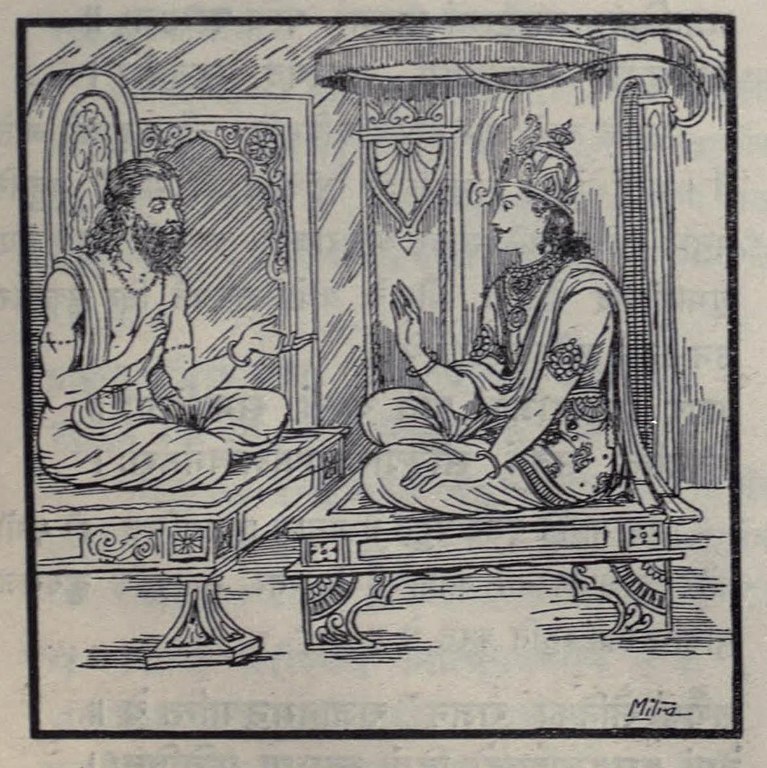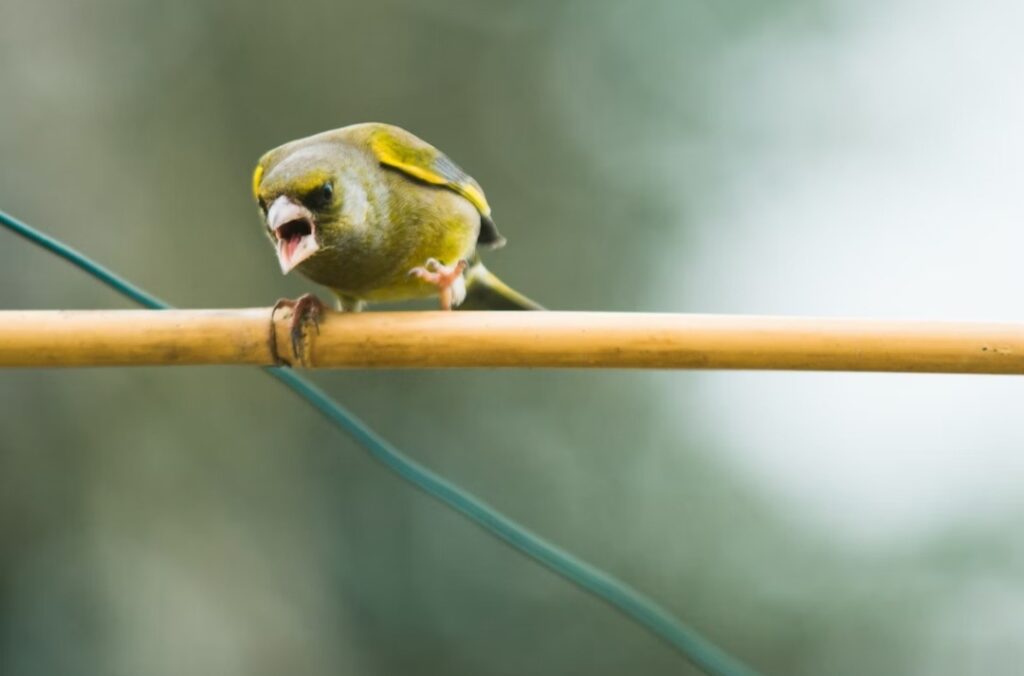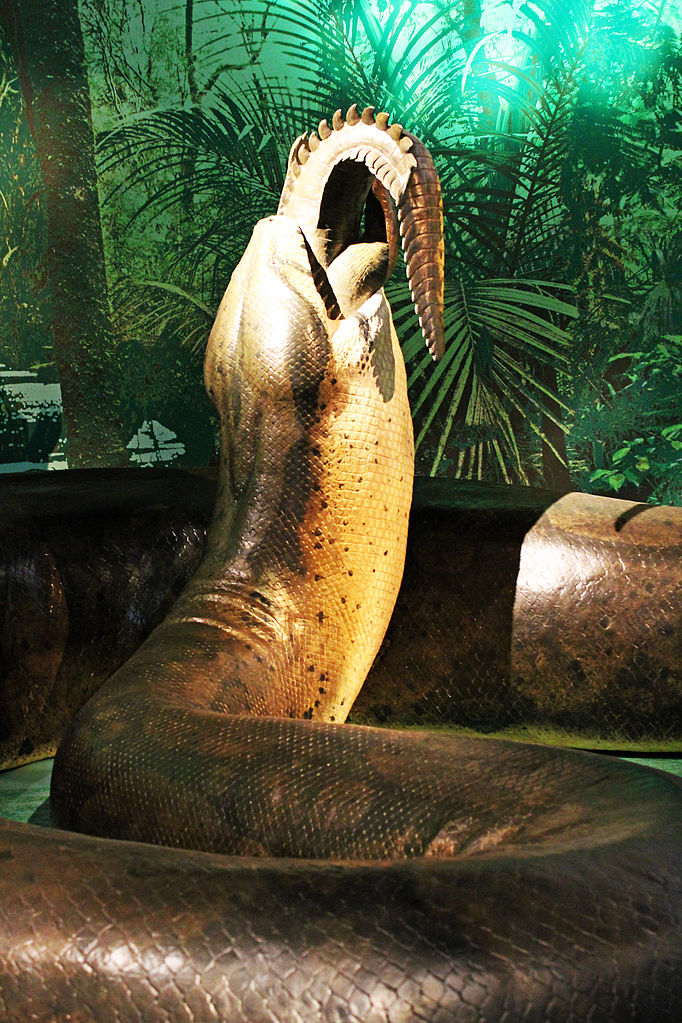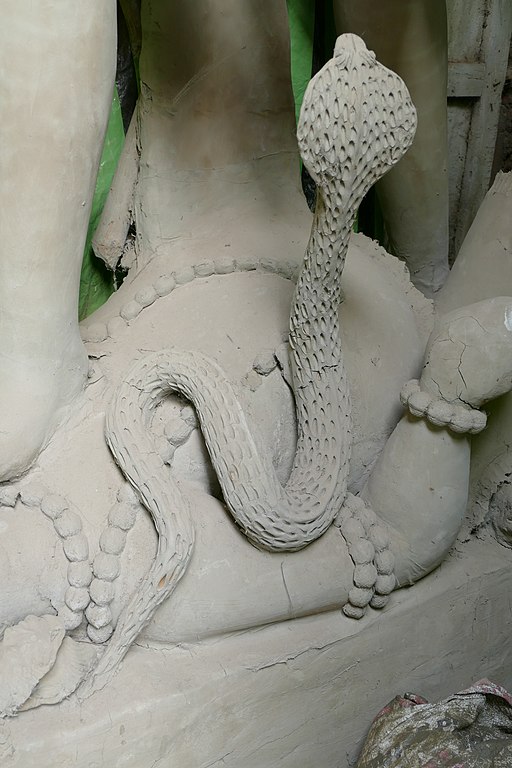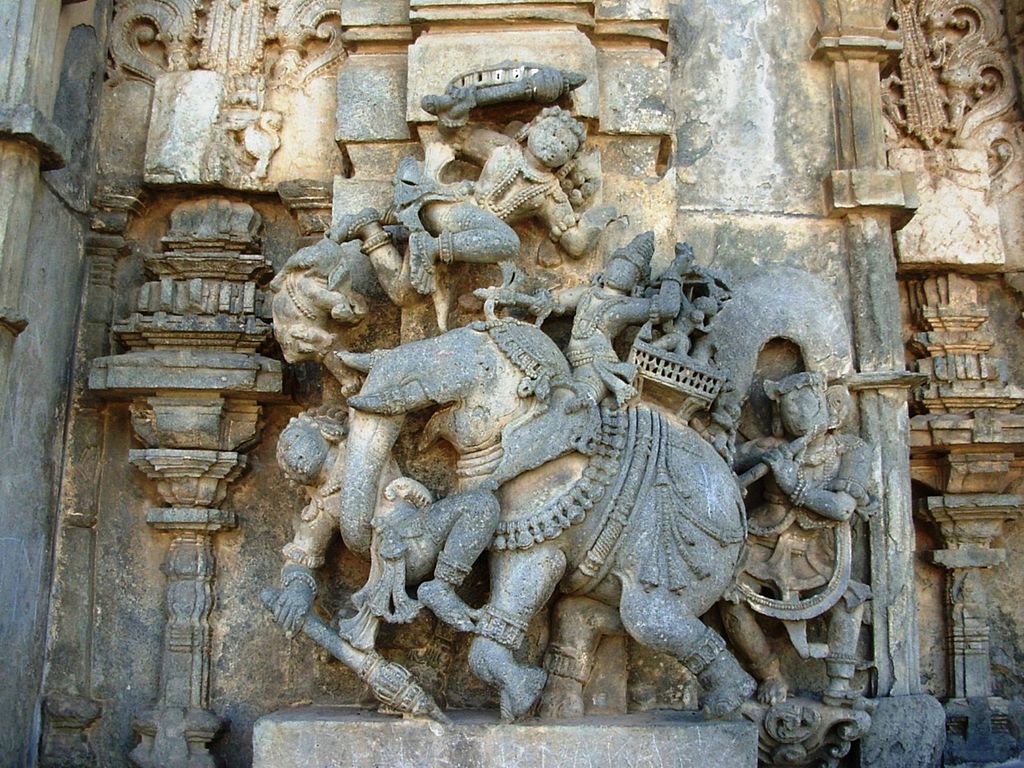
Table of Contents (The Complete Mahabharata in Simple English)
Previous Post: Rishi Astika is Born
| Note: In the previous post, we read about Rishi Astika’s birth and the qualities of the high-souled child. In this post, Janamejaya asks his ministers to tell him the circumstances in which his father, Parikshit, lost his life. |
At the time when Rishi Astika was growing into a wise boy, Janamejaya became interested in finding out all the details of his father’s death. He asked his ministers to tell him everything they knew. Based on what he discovered, he would take action if it was for the benefit of the world, or do nothing, if an action would not benefit the world.
A minister replied, “O king, your father was very virtuous and high-souled. He always protected the people of his kingdom. He was virtue and justice personified. He was a powerful king who protected all the four varnas impartially and they, in turn, performed all their duties. He loved his subjects and kept them contended. Having learnt the science of warfare from Saradwat, he he protected his kingdom and the Goddess Earth. Ever virtuous,no one hated him and he hated no one. He cared for the widows, orphans, maimed, and poor subjects of his kingdom. Not only was the king virtuous, he was also handsome like Chandra Deva. O Janamejaya, your father was very dear to Sri Krishna and loved by everyone.
Your father was born from the womb of Queen Uttara when the Kuru race was almost extinct. That’s how he got the name, Parikshit, which means born in an extinct line.
The virtuous King Parikshit had gained complete control over the six passions. He was intelligent, had an excellent memory, and was well-versed in the treatises of the king’s duties. His sharp mind understood exactly how to interpret the texts. Well-versed with the science of morality and political science, he ruled for 60 years, and when he died, all the people of the kingdom were filled with grief. O Janamejaya, being his son, you were appointed the next monarch, and since then you have also engaged in protecting all creatures.
In response to his minister’s words, Janamejaya said, “All the kings of the Kuru race have cared for their subjects. Not a single king in this noble race was disliked by his subjects. My ancestors, especially, were always engaged in great achievements. I want to know how my father, who was so virtuous, met with his death.”
King Janamejaya’s ministers always spoke words that were helpful to the king. They said, “Even though your father was a great protector and always followed the scriptures, he became addicted to hunting just like your noble ancestor, King Pandu. When your father went hunting, he handed over the responsibility of the kingdom to us.
One day while hunting, he shot a deer which escaped into the forest. Your father pursued the deer deep into the woods on foot with his sword and quiver. However, even after searching everywhere, he could not find the animal.
Being sixty years of age and having lost his youthful strength, he became tired and hungry in the forest. There, seated deep in the forest, he saw a person. Your father asked him if he had seen the deer, but this person did not give any answer. Your father, who was very tired and hungry, suddenly became angry, picked a dead snake from the ground with the end of his bow and put it on the person’s shoulder. Unfortunately, the king did not know he had insulted a very virtuous and high-souled rishi. The great ascetic did not say anything. Feeling no anger towards your father, the rishi forgave your father, and continued sitting in the same posture without even moving to remove the dead snake. After this incident, your father left the forest and returned to his capital city.
The rishi had a son called Sringin who was born from a cow. He was famous for his brahmin prowess and anger. Sringin used to visit his teacher’s ashram everyday to pay his respects to his teacher. That day too, Sringin went to worship his teacher, and after he completed, his teacher commanded Sringin about to return home.
On the way home, Sringin met a friend who told him about how his father was insulted by the king. Sringin, who was still a boy, was, however, very powerful in his ascetic penances. He was filled with wrath when he heard about his father being insulted, and cursed King Parikshit saying, “Watch the power of my words. Influenced by what I’m about to say, Takshaka, the powerful and venomous snake will burn down the wretch who placed the dead snake on my innocent father’s shoulder.
After uttering the disastrous words, Sringin went to his father and told him everything. The great rishi, immediately sent a virtuous and well-mannered disciple, called Gaurmukha, to the king. Gaurmukha rested for sometime after reaching the palace and informed the king about the curse with the intention of saving the monarch. Hearing Gaurmukha’s words of caution, the king took every precaution to protect himself from Takshaka.
King Parikshit remained safe for the first six days. On the seventh day, a Brahma Rishi, called Kasyapa, went to meet the king to cure him in case he was bitten by Takshaka. However, Takshaka saw the rishi going to Hastinapur and immediately asked him where he was going in such a hurry. Kasyapa replied that he was going to King Parikshit to cure him if the deadly snake, Takshaka, bit him.
“Why do you want to cure the king who I’m going to bite?” Takshaka asked Kasyapa. After saying this, Takshaka unleashed his venom on a nearby banian tree which immediately collapsed into a heap of ashes. Having burnt the tree, Takshaka challenged the rishi to revive it. To Takshaka’s surprise, Kasyapa was able to revive the tree.
Seeing the rishi’s power, Takshaka asked the rishi his true reason and desire for wanting to save Parikshit. Kasyapa replied, “I’m going there for wealth.” Takshaka said in a very well-mannered way to the rishi, “O sinless one, take wealth from me instead. You can return home with more wealth than the king would give you. Kasyapa, took the wealth Takshaka offered, and returned home.
After Kasyapa had left, Takshaka disguised himself, reached King Parikshit’s protected mansion, and burnt the king down with his venom.
O Janamejaya, being the monarch’s son, you were then crowned the king.”
The minister continued, “I have told you everything there was to know in relation to your father’s demise. Takshaka destroyed your father and insulted Rishi Utanka. With this knowledge, decide the correct course of action.”
After hearing his minister, Janamejaya asked, “How did you know that Takshaka had burnt down a banian tree when he met Rishi Kasyapa and that the rishi had revived it?”
The minister replied, “O king, when Takshaka unleashed his venom on the tree, there was a person standing on the branches of the tree collecting wood for sacrificial rituals. Neither Takshaka nor Kasyapa saw him there. That man was also burnt into ashes with the tree, and when the rishi revived the tree, he too was revived. That person, who was in the service of a brahmin, came and told us about these events.
Table of Contents (The Complete Mahabharata in Simple English)


